
Nikk Ogasa is a staff writer who focuses on the physical sciences for Science News, based in Brooklyn, New York. He has a master's degree in geology from McGill University, where he studied how ancient earthquakes helped form large gold deposits. He earned another master's degree in science communication from the University of California, Santa Cruz. His stories have been published in Science, Scientific American, Mongabay and the Mercury News, and he was the summer 2021 science writing intern at Science News.

All Stories by Nikk Ogasa
-
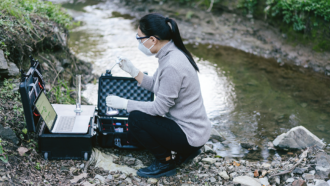 Chemistry
ChemistrySimple process destroys toxic and widespread ‘forever’ pollutants
Ultraviolet light, sulfite and iodide break down these PFAS molecules faster and more thoroughly than other methods.
-
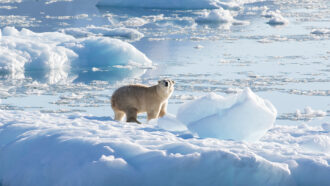 Animals
AnimalsSome Greenland polar bears are surviving with very little sea ice
The ‘glacial mélange’ on which they’ve come to rely — a mix of ice, snow and slush — could be a temporary refuge for some polar bears.
-
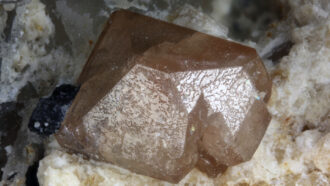 Earth
EarthTiny gemstones show when Earth’s crust first started moving
Chemical hints observed in zircons suggest when the important process of plate tectonics first took off.
-
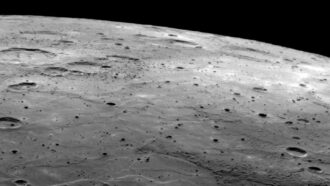 Planets
PlanetsMercury’s surface may be studded with diamonds
Billions of years of meteorite impacts may have transformed much of Mercury's graphite crust into precious gemstones.
-
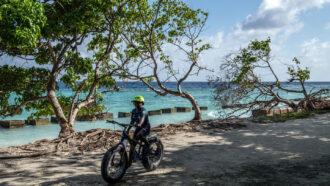 Climate
ClimateUN report calls for two-pronged approach to slow climate impacts
The latest IPCC climate change report underscores an urgent need for action to avoid the worst consequences of global warming.
-
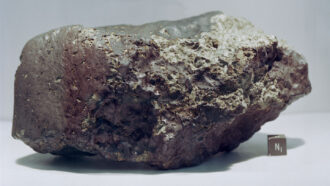 Planets
PlanetsNo, organic molecules alone don’t point to life on Mars
These carbon-based molecules, found in a meteorite, may reflect merely a mixing of water and minerals on the Red Planet over billions of years.
-
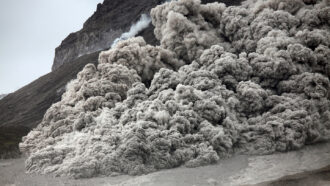 Earth
EarthVolcanic avalanches may be more destructive than previously thought
Pressures within these pyroclastic flows may be as much as three times as high as observations had suggested.
-
 Science & Society
Science & SocietyEmpty stadium ‘ghost games’ increase losses for home teams
European soccer teams playing at home during the pandemic also racked up more foul calls.
-
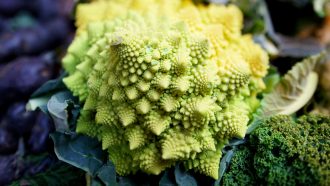 Plants
PlantsHow Romanesco cauliflower grows spiraling fractal cones
By tweaking just three genes in a common lab plant, scientists have mimicked one of nature’s most impressive mathematical patterns.
-
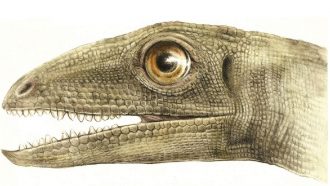 Earth
EarthNew beetle species found in fossil poop of this dino relative
Whole beetles preserved in fossilized reptilian poop suggest that ancient droppings may deserve a closer look.
-
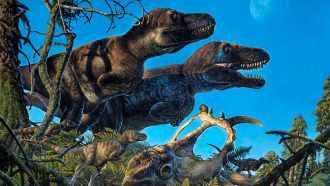 Fossils
FossilsDinosaur families appear to have lived in the Arctic year-round
Fossils of baby dinosaurs in northern Alaska challenge the idea that northern dinosaurs only spent their summers in the high Arctic.